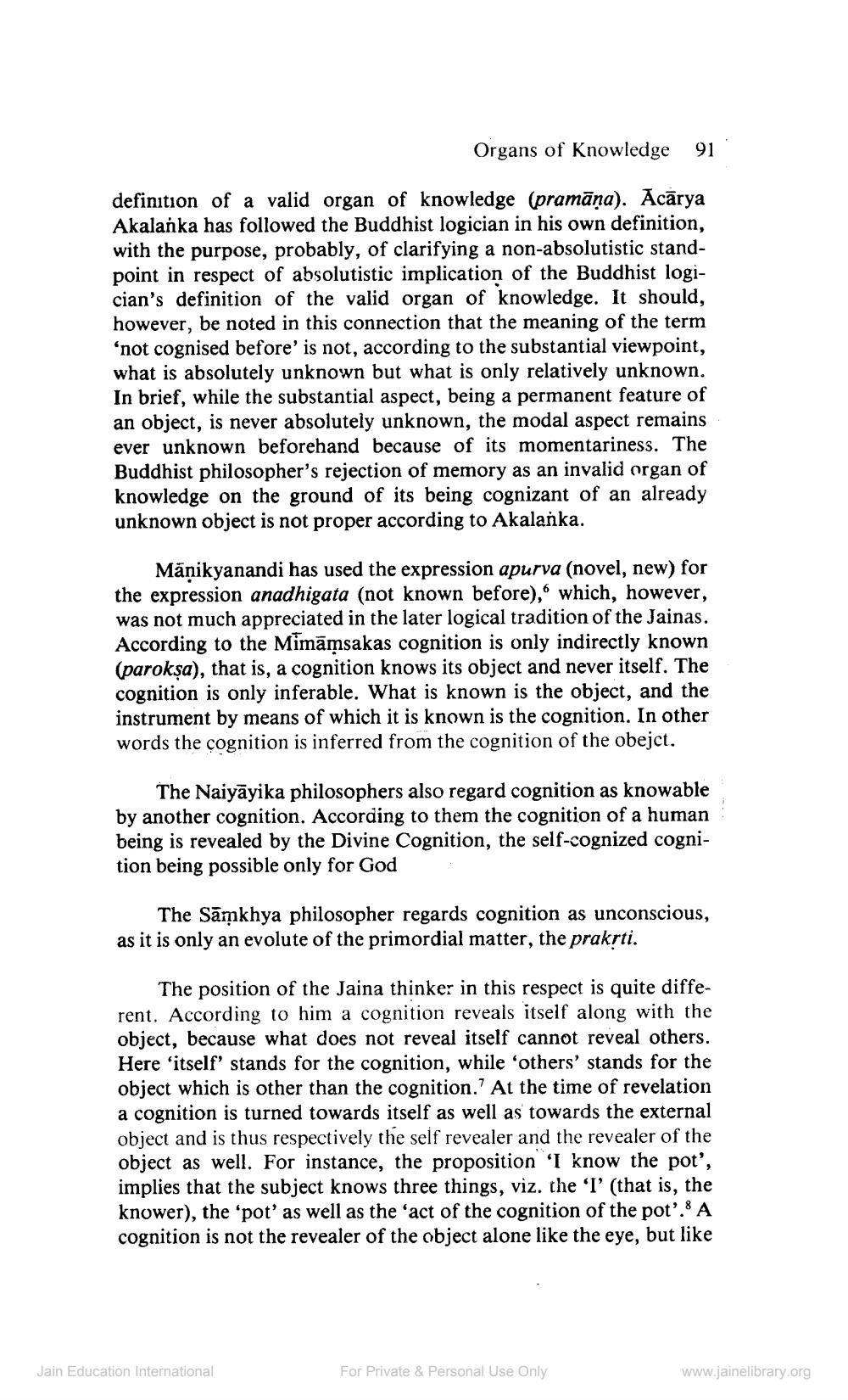________________
Organs of Knowledge 91
definition of a valid organ of knowledge (pramāņa). Acārya Akalanka has followed the Buddhist logician in his own definition, with the purpose, probably, of clarifying a non-absolutistic standpoint in respect of absolutistic implication of the Buddhist logician's definition of the valid organ of knowledge. It should, however, be noted in this connection that the meaning of the term ‘not cognised before' is not, according to the substantial viewpoint, what is absolutely unknown but what is only relatively unknown. In brief, while the substantial aspect, being a permanent feature of an object, is never absolutely unknown, the modal aspect remains ever unknown beforehand because of its momentariness. The Buddhist philosopher's rejection of memory as an invalid organ of knowledge on the ground of its being cognizant of an already unknown object is not proper according to Akalanka.
Manikyanandi has used the expression apurva (novel, new) for the expression anadhigata (not known before), which, however, was not much appreciated in the later logical tradition of the Jainas. According to the Mimāmsakas cognition is only indirectly known (parokșa), that is, a cognition knows its object and never itself. The cognition is only inferable. What is known is the object, and the instrument by means of which it is known is the cognition. In other words the cognition is inferred from the cognition of the obejct.
The Naiyāyika philosophers also regard cognition as knowable by another cognition. According to them the cognition of a human being is revealed by the Divine Cognition, the self-cognized cognition being possible only for God
The Samkhya philosopher regards cognition as unconscious, as it is only an evolute of the primordial matter, the prakrti.
The position of the Jaina thinker in this respect is quite different. According to him a cognition reveals itself along with the object, because what does not reveal itself cannot reveal others. Here 'itself' stands for the cognition, while 'others' stands for the object which is other than the cognition. At the time of revelation a cognition is turned towards itself as well as towards the external object and is thus respectively the self revealer and the revealer of the object as well. For instance, the proposition 'I know the pot', implies that the subject knows three things, viz. the l' (that is, the knower), the 'pot' as well as the 'act of the cognition of the pot’S A cognition is not the revealer of the object alone like the eye, but like
Jain Education International
For Private & Personal Use Only
www.jainelibrary.org




